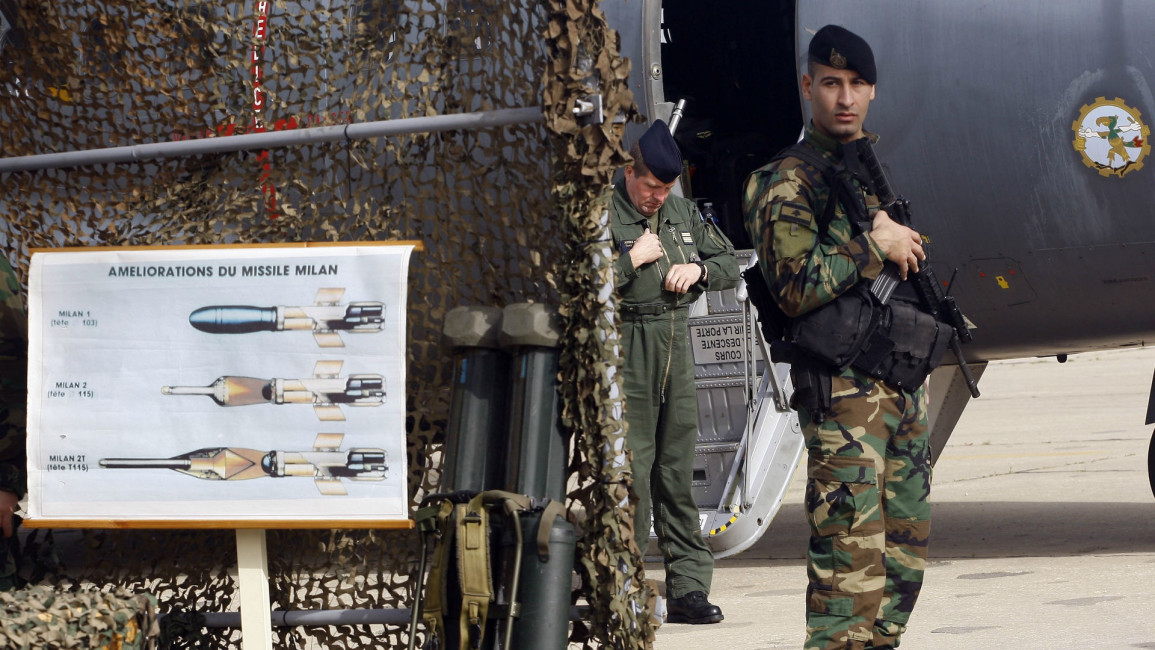
Lebanon's third most important army
The Lebanese army is a unique entity in Lebanon. It enjoys the superficial support from the population expressed through slogans, songs and media campaigns.
When it comes to the crunch, many return to the fold of their sects, parties and militias.
A common joke is that the national army is the third most powerful army in Lebanon.
National armies elsewhere are organised to protect borders, prevent attacks from outside and confront domestic threats such as terrorism.
In Lebanon, the army is unable to prevent breaches of the country's borders. Instead, it acts as an arbiter between the warring Lebanese factions and sects.
April 13, 1975 is widely considered to be the day the Lebanese civil war broke out. It followed numerous cases of aggression by Israel, and as the war ground on, the national army lost its last semblance of influence and unity.
The ranks were divided among the various militias, and soldiers became fighters - the tools of outside powers.
The few who remained in the army were involved in an intense conflict dubbed the war of cancellation.
Michel Aoun was the commander of the army and the Lebanese Forces militias were led by Samir Geagea.
That was until the Syrian army intervened and forced Aoun into exile, taking control of the army for four years before it was rebuilt by Emile Lahoud.
This maintained Israel's military superiority. Lebanon was left without an air force, anti-aircraft capabilities, tanks or heavy artillery to compete.
In southern Lebanon, civilians who had no army to defend them took up arms to defend their land from repeated Israeli attacks that had taken place since 1984.
The Popular Lebanese Resistance was established by Musa al-Sadr, and followed other resistance movements, mainly by leftist, under the supervision of George Hawi and Muhsin Ibrahim.
Hizballah, was established in 1985 and by the early 1990s became the central resistance force to Israel. When Lebanon was liberated in 2000, it remained under Syrian custody.
Hizballah suffered a setback when the UN Security Council voted to define it as a militia group rather than a resistance force.
Lebanese found themselves with two options – either to accept the presence of the militia on Lebanese soil or confront it.
In 2007, military conscription was abolished, which further exasperated the militiaisation of Lebanon.
Cities became battlegrounds and Tripoli witnessed 20 rounds of fighting between the Jabal Mohsen and Bab al-Tabbaneh militias.
Lebanese politicians with vested interests have used every opportunity to weaken the Lebanese army to strengthen their own militias.
The army has always devoted to safeguard Lebanon against sectarianism and to be an inclusive force for all citizens, regardless of their religion. This is why conscription was ended by opportunist politicians.
But their defeat of the radical Fatah al-Islam group, confrontation of Israeli aggressions, and foiling of numerous terror plots is nothing short of a miracle for a country riddled with militias.
It is young Lebanese who are sacrificed and then praised in national songs. But they are soon forgotten when sectarian battles break out.
This article is an edited translation from our Arabic edition.



